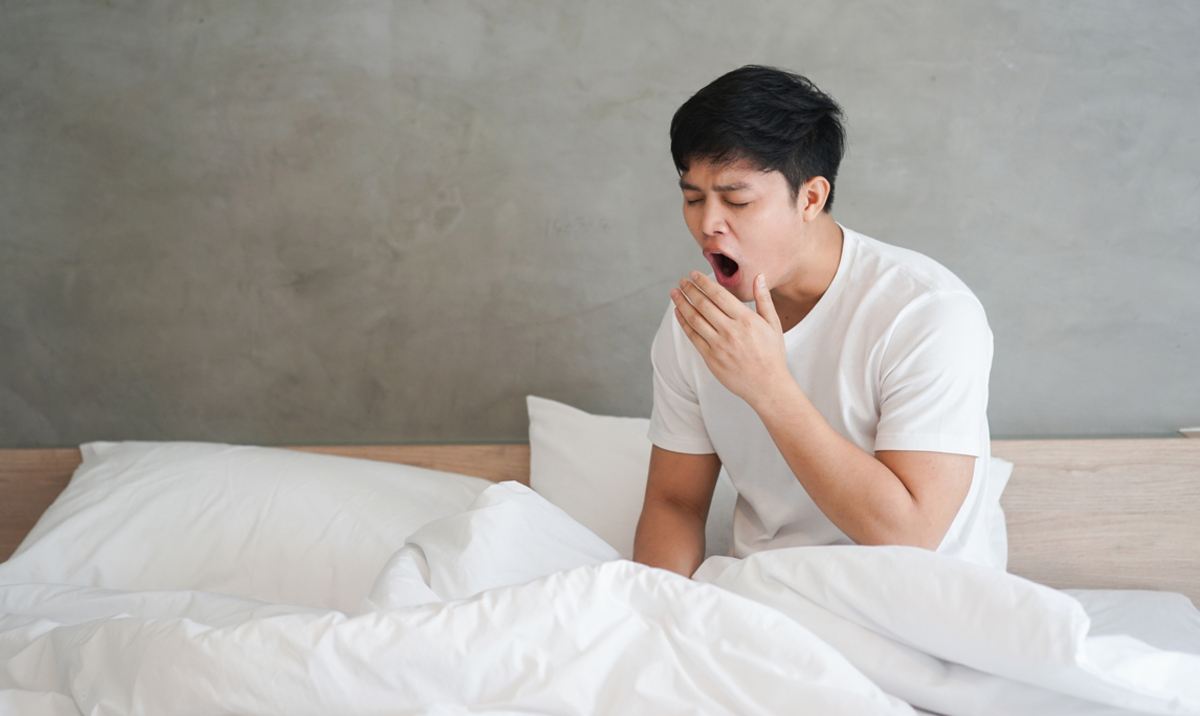Were you completely healthy, happy (or at least content), and energetic before COVID-19 invaded your life — and are you now mostly sheltering in place, feeling completely exhausted nearly all of the time, not even waking up feeling rested? You're not alone.

Pandemics tend to mess with your brain, and other mental-health causes of fatigue
The Pew Research Center reported, before the COVID-19 pandemic even got into full swing, that 18 percent of Americans were feeling nervous or anxious either most of the time or actually all of the time, a worrying trend closely correlated with the coronavirus outbreak. (Under normal circumstances, this figure hovers closer to nine percent.)
Stress can indirectly make you feel tired, since it gets in the way of a good night's sleep. The relationship between stress and sleeplessness easily becomes a vicious cycle, because sleep deprivation fuels stress, too. There's no need to point out that worries about your health and the health of the people who matter to you, about how the world will change as a result of the pandemic, and about the economic consequences of COVID-19, definitely count as stress.
The social isolation associated with the COVID-19 pandemic is a very likely cause of fatigue, too, as a study of isolated older adults showed that a lacking social life and the resulting loneliness makes people feel tired. When combined with limitations on your freedom of movement, which may, research among prisoners seems to suggest, also cause fatigue, that makes for an unfortunate double whammy.
COVID-19 pandemic related fatigue may be temporary, and subside together with the pandemic, or once you build resilience and coping skills.
Other warning signs that you may be depressed include:
- Chronic feelings of sadness, hopelessness, emptiness, and pessimism.
- Feeling guilty, worthless, and hopeless for no particular reason.
- Loss of interest in activities that used to be exciting or at least tolerable — this does not include wanting to go out and do things but not being able to because of COVID-19.
- Changes in appetite and weight — some depressed people no longer feel like eating much, while others overeat.
- Suicidal thoughts, feelings, or plans.
- Depression may also manifest through physical symptoms like generic aches and pains, stomach trouble, or headaches that don't have an apparent physical cause. (During this time, some people may even misinterpret these as signs that they could have the coronavirus.)
But your COVID-19 quarantine fatigue could also have physical causes
While there's no doubt that pandemics can cause mental health struggles, being fatigued all the time can also very much be the result of something more physical. Could any of these things be making you tired?
- Are you exercising enough? A sedentary lifestyle can cause tiredness. The CDC advises adults to get at least 150 minutes a week of moderate cardio — stuff like brisk walking or biking — along with strength training twice a week. You may or may not be able to exercise outdoors or at the gym during the pandemic, depending on where you live, but you can find creative ways to work out at home. Exercising regularly may well boost your energy levels.
- Is your diet too heavy on carbs? A poor diet too, could be a cause of fatigue. Make sure to get enough protein in your diet each day, and watch your iron intake, too.
- Are you craving outdoor time? Spending time in fresh air boosts your mental wellbeing and energy levels, but many of us are unable to reap these benefits right now. If you can safely exercise outdoors, while practicing social distancing, that is something you could consider. Otherwise, try to at least spend some time on your balcony or simply open the windows and let the fresh air in.
- Are you drinking too much? If so, you're certainly not alone — plenty of people are trying to self-medicate their COVID-19 worries away with the help of royal amounts of booze. "Wake me up when it's all over," they may be thinking, Avicii style. Contrary to popular belief, alcohol doesn't help you sleep better. Drinking alcohol initially helps you feel drowsy, but produces stress hormones a few hours on, ones that interfere with sleep. We don't really need science to tell us that a night of heavy drinking can easily make us feel drained the next day, either. Everyone who's been there, done that, knows. If you're constantly tired, go easy on the booze. Do that anyway, actually.
Can fatigue also be a COVID-19 symptom?
Yes. Fatigue has been recognized as a possible symptom of the novel coronavirus in at least one study done in a Chinese population early on during the COVID-19 pandemic. As time has gone on and scientists have had access to a much larger sample size of patients, every list of coronavirus symptoms (including the COVID-19 symptom list published by the CDC) now features extreme tiredness as a possible sign of coronavirus.
Especially if you also experience other known coronavirus symptoms such as a dry cough, fever, shortness of breath, chills, headache, or a loss of taste and smell, follow your authorities' instructions. That may mean calling a hotline designated for people who suspect they could be infected, or it may mean getting in touch with your family doctor.
In conclusion
- Photo courtesy of SteadyHealth


Your thoughts on this